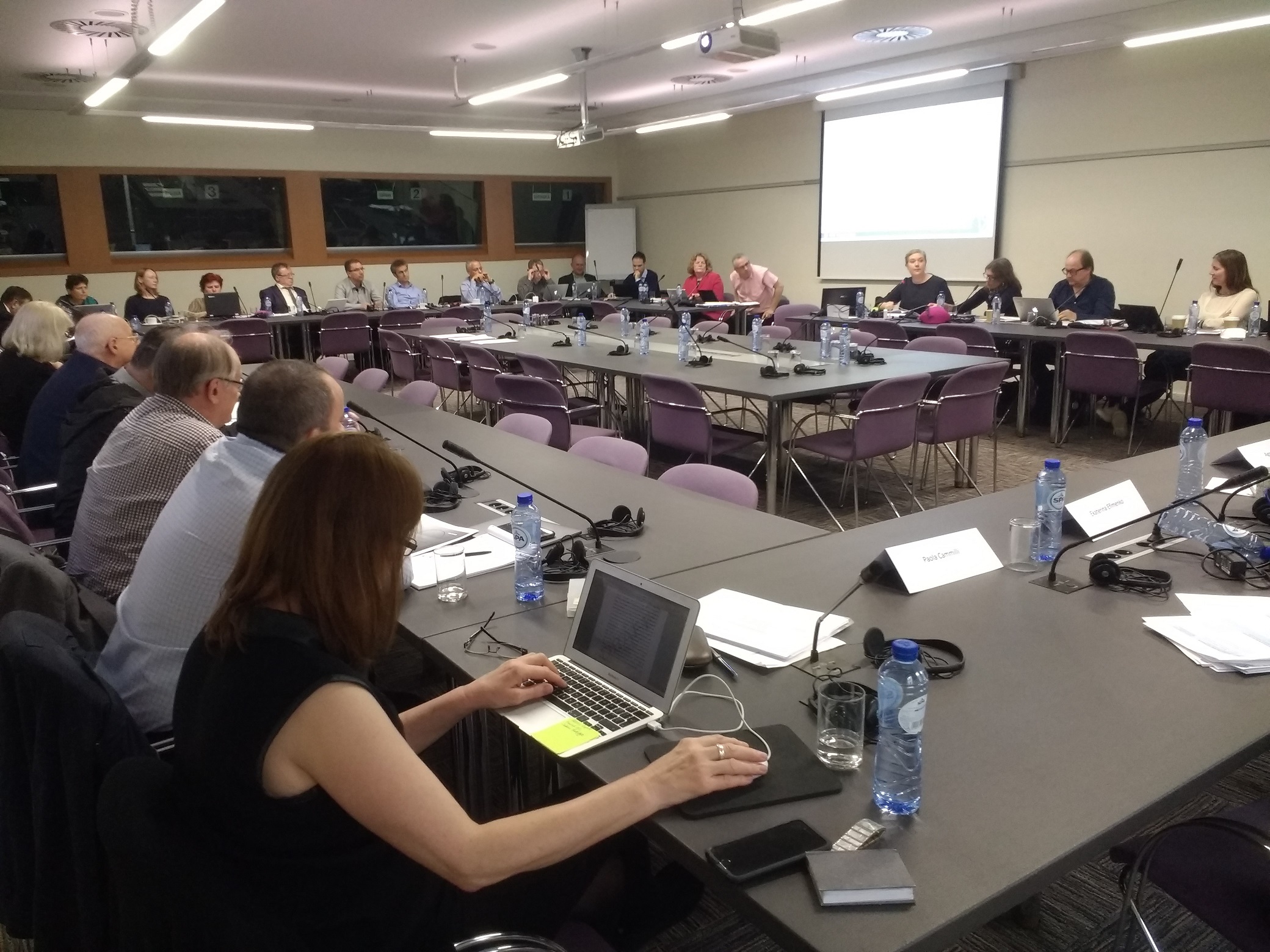Higher Education and Research trade unions demand equal status for teaching and research and supportive working environment for staff
Published:
Recognition of teaching in higher education, supportive working environment for staff, and protection of academic freedom are the key elements for the future success of the European Higher Education Area, concluded members of the ETUCE Higher Education and Research Standing Committee (HERSC) at their biannual meeting on 9-10 April 2018. The meeting took place in Brussels and was attended by more than 30 delegates representing 23 European countries.
HERSC members exchanged their views on the future of the Bologna Process with a representative from the European Student Union and discussed ETUCE Report and Recommendations for Bologna Follow Up Group Ministerial Meeting in Paris which is taking place on 23-25 May 2018. The importance of higher public investment in higher education and research and appropriate working conditions for education personnel to allow for more student-centred learning were underlined.
Following a discussion at the previous HERSC meeting on supporting the integration of refugee students and staff to higher education, participants discussed the specific topic of academic staff mobility, concluding that in many countries, the international mobility is more incentivised and less restricted by legal obstacles than inter-institutional mobility.
In smaller working groups, HERSC members had an opportunity to exchange their experience and views on status and recognition of teaching in their countries. They highlighted that teaching and research should be regarded as equally important elements of academic work, and that quality research requires sufficient time and public funding instead of relying on external grants. Higher education and research trade unions also noted that transparent evaluation of academic staff and better supportive work environments are essential for ensuring gender equality in universities and research centres.